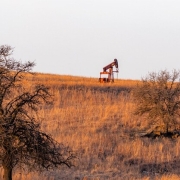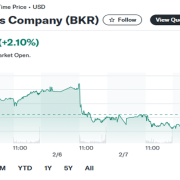⚠️ IMPORTANT LEGAL DISCLAIMER:
The information provided on this page is for general informational purposes only and does not constitute legal, financial, or investment advice. Oil and gas laws, mineral rights regulations, and royalty structures vary significantly by state and jurisdiction. While we strive to provide accurate and up-to-date information, no guarantee is made to that effect, and laws may have changed since publication.
You should consult with a licensed attorney specializing in oil and gas law in your jurisdiction, a qualified financial advisor, or other appropriate professionals before making any decisions based on this material. Neither the author nor the publisher assumes any liability for actions taken in reliance upon the information contained herein.
Retirement marks a significant transition in life, and for those fortunate enough to own oil and gas royalties, it comes with a unique set of financial opportunities and challenges. While royalties can provide a steady stream of passive income, they also introduce complexities that require careful financial planning. From managing fluctuating income to optimizing tax strategies, retirees must take a proactive approach to preserve their wealth and ensure long-term financial security.
Understanding Oil and Gas Royalties
Oil and gas royalties are payments made to mineral rights owners based on a percentage of revenue generated from the extraction of natural resources. These royalties can offer a reliable source of income during retirement, but they also come with unpredictable variables, including commodity price volatility, production decline, and regulatory changes.
Royalties are typically structured as a percentage of gross or net production revenue. The exact terms depend on lease agreements negotiated with operators. Retirees who own these rights must understand the specifics of their agreements, as well as the broader market dynamics that influence royalty income.
Managing Income Volatility
Unlike traditional retirement income sources like pensions or annuities, oil and gas royalties can be highly variable. Income may fluctuate based on market prices, well productivity, and operational decisions made by energy companies. This variability makes it essential for retirees to implement strategies that can buffer against unpredictable cash flows.
Creating a diversified income strategy is key. Retirees should consider integrating royalty income with more stable sources, such as Social Security, fixed-income investments, and annuities. Establishing a cash reserve can also provide a cushion during periods of lower royalty payments.
Budgeting becomes particularly important for retirees with fluctuating income. Using conservative income estimates when planning expenses can help avoid financial shortfalls. Working with a financial planner experienced in royalty management can also provide insights into projecting future income based on well data and market trends.
Navigating Tax Implications
Oil and gas royalties are considered taxable income and are subject to federal, state, and sometimes local taxes. In addition to ordinary income tax, royalty owners may also face self-employment taxes and must account for deductions and depletion allowances.
The depletion allowance allows mineral owners to deduct a portion of the income derived from non-renewable resources, which can significantly reduce taxable income. However, understanding how to apply this deduction correctly is critical. Tax professionals with expertise in oil and gas taxation can help retirees maximize deductions and avoid common pitfalls.
Quarterly estimated tax payments are often required for royalty income, making it important for retirees to stay organized and plan ahead. Maintaining accurate records of income, expenses, and deductions is essential for staying compliant and minimizing tax liability.
Estate Planning and Inheritance Considerations
Oil and gas royalties can be valuable assets to pass on to heirs, but they also require careful estate planning. Retirees should work with estate attorneys to ensure their mineral interests are included in their wills or trusts and that the ownership transfer process is clearly outlined.
One important consideration is whether to hold royalties in a revocable trust. Doing so can avoid probate and simplify the transfer of ownership. It can also provide privacy and ensure that beneficiaries receive income in a timely manner.
It is also important to keep documentation of ownership and lease agreements readily available. Clear records help heirs and estate executors manage the transition and avoid legal disputes. In some cases, retirees may choose to sell a portion of their royalties during their lifetime to simplify estate administration and provide immediate financial benefits.
Assessing the Potential for Asset Sales
Selling oil and gas royalties can be a strategic decision for retirees looking to reduce risk or meet immediate financial goals. Market conditions, well performance, and personal financial needs all influence whether selling is the right move.
A lump-sum payment from selling royalties can provide liquidity and reduce exposure to income volatility. However, it is essential to obtain a professional valuation before selling to ensure a fair price. Brokers and consultants with experience in mineral rights can provide market analysis and connect sellers with reputable buyers.
Selling all or part of a royalty interest can also be part of a broader financial strategy. For example, proceeds can be reinvested into more predictable income-generating assets, such as dividend-paying stocks or real estate. This reallocation can align better with a retiree’s risk tolerance and cash flow needs.
Incorporating Royalties into a Holistic Retirement Plan
Royalty income should be integrated into a broader retirement plan that considers long-term goals, healthcare costs, inflation, and legacy planning. This involves working with financial advisors who understand the unique nature of oil and gas assets and can tailor strategies accordingly.
Asset allocation decisions should take royalty income into account. For example, retirees with strong royalty income may have more flexibility to invest conservatively in other areas. Alternatively, if royalty income is uncertain, a more balanced portfolio with additional income streams may be appropriate.
Planning for healthcare is also critical. Given the unpredictable nature of healthcare costs in retirement, setting aside funds for insurance premiums, out-of-pocket expenses, and long-term care is essential. Royalties can be used to fund Health Savings Accounts (HSAs) or to supplement other medical expense strategies.
Monitoring and Reviewing Lease Agreements
Lease agreements are the foundation of royalty income. Retirees must understand the terms of their leases, including royalty rates, duration, and operator obligations. Regularly reviewing these agreements and staying informed about drilling activity and production reports is vital.
In some cases, it may be advantageous to renegotiate lease terms or seek legal assistance if disputes arise. Understanding your rights as a lessor and ensuring operators comply with contractual obligations can protect income and preserve asset value.
Keeping detailed records of all correspondence and payments related to the lease is important for transparency and legal protection. Working with legal advisors familiar with oil and gas leases ensures that retirees are adequately protected and positioned for success.
Evaluating Environmental and Regulatory Risks
Oil and gas royalties are subject to regulatory oversight and environmental considerations. Changes in environmental policy, state regulations, or local ordinances can impact royalty income and asset value. Retirees must stay informed about regulatory developments that may affect their royalties.
Environmental liabilities can also become an issue, particularly if the land is found to be contaminated or if drilling activities cause damage. In such cases, royalty owners could be implicated, especially if they retain surface rights. Consulting with environmental and legal professionals can help identify and mitigate these risks.
Retirees should also consider diversifying away from energy assets if regulatory uncertainty becomes a concern. Reducing reliance on a single income source can provide greater financial stability and reduce exposure to sector-specific risks.
Utilizing Technology and Professional Services
Modern tools and services can help retirees manage their oil and gas royalties more effectively. Online platforms provide dashboards to track production, revenue, and payments. These tools offer transparency and help retirees monitor their income in real time.
Professional royalty management services can also be beneficial. These firms handle administrative tasks, monitor operator compliance, and provide detailed reporting. By outsourcing royalty management, retirees can focus on enjoying retirement while ensuring their income stream is optimized.
Financial advisors, CPAs, and legal experts with experience in mineral interests form an essential team. Collaborating with knowledgeable professionals ensures a comprehensive and coordinated approach to financial planning.
Protecting Against Scams and Fraud
Retirees are often targeted by fraudsters, and those with oil and gas royalties are no exception. Scams may involve unsolicited offers to purchase royalties at below-market prices, false claims about unpaid royalties, or deceptive lease proposals.
To protect against fraud, retirees should be cautious of high-pressure sales tactics and unsolicited communications. Always verify the credentials of anyone offering to buy or manage royalty interests. Working with trusted brokers, attorneys, and financial advisors reduces the risk of falling victim to scams.
Regularly reviewing and securing legal documents, including deeds, leases, and payment records, is also critical. Keeping these documents in a safe place and sharing access with trusted family members or professionals ensures continued protection and oversight.
Planning for Generational Wealth
Oil and gas royalties can serve as a powerful vehicle for generational wealth. With proper planning, retirees can pass down a valuable asset that provides income for children and grandchildren. Establishing family trusts or limited liability companies (LLCs) to hold royalty interests can help preserve these assets and simplify management.
Teaching heirs about mineral rights and the responsibilities that come with them is equally important. Providing educational resources and involving family members in financial planning conversations can ensure a smooth transition and responsible stewardship of assets.
Generational wealth planning also includes charitable giving strategies, tax-efficient wealth transfers, and legacy documentation. Working with estate planners who specialize in royalty assets ensures that retirees’ long-term wishes are respected and fulfilled.
For retirees who own oil and gas royalties, effective financial planning is essential to unlock the full potential of these assets. While royalty income can provide a valuable supplement to traditional retirement sources, it also requires careful management due to its variability and complexity.
By working with experienced professionals and adopting a holistic approach, retirees can integrate royalties into their broader retirement strategy. From managing taxes and regulatory risks to planning for healthcare and generational wealth, each element of the plan contributes to long-term financial security.
Ultimately, understanding and actively managing oil and gas royalties empowers retirees to enjoy a comfortable, secure, and fulfilling retirement.
Do you have any questions about Financial Planning via Oil and gas? Feel free to contact us here.











